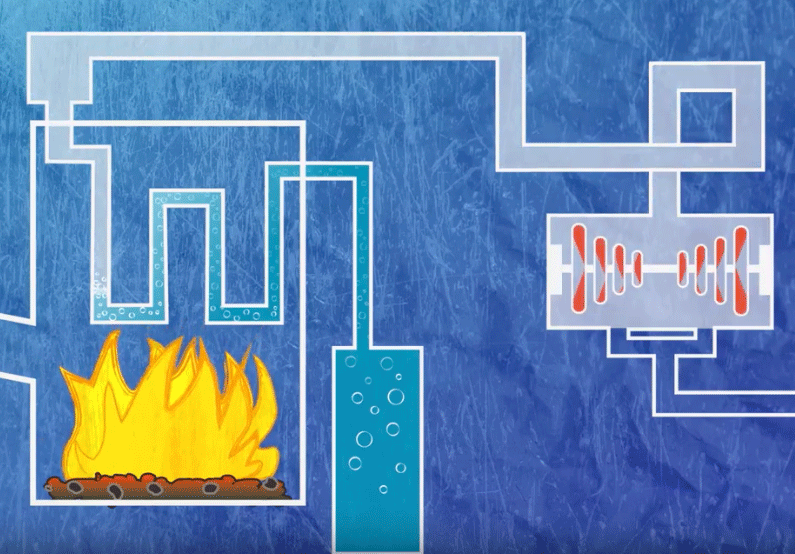Federal Update
Federal Update
Hoeven and Cramer Help Introduce Legislation to Eliminate Wind Tax Credit
WASHINGTON – Senators John Hoeven and Kevin Cramer this week helped introduce legislation, led by Senator James Lankford (R-Okla.) and joined by Senator Shelley Moore Capito (R-W.Va.), to completely phase out the federal production tax credit (PTC) for renewable energy sources, like wind. The bill specifies that any new projects would need to begin construction by the end of this year in order to qualify for the credit, as is the case under current law. The senators introduced similar legislation in the 116th Congress.
“As recent severe weather has clearly demonstrated, we need reliable baseload power sources that are available 24 hours a day, seven days a week, and are able to keep operating when power is needed most,” said Senator Hoeven. “The wind industry is now commercially-viable, and the continued extension of the wind PTC further distorts energy markets away from critically-needed baseload power, like coal. That’s why we reached a bipartisan agreement in 2015 to phase out and end this tax credit, and our efforts are about ensuring Congress follows through on this commitment.”
“The wind production tax credit is fundamentally unfair and has long outlived its expiration date,” said Senator Cramer. “Our bill would help level the energy market by forcing this disruptive tax credit to finally expire.”
This comes as part of Hoeven and Cramer’s efforts to end extensions of the PTC, including:
- Pressing the Finance Committee to oppose any further wind PTC extensions.
- Filing an amendment to strike a one-year extension of the wind PTC from year-end legislation passed by Congress in December.
- Urging the Office of Management and Budget under the Trump administration to include a sunset of the wind PTC in its rescissions list sent to Congress, after the Consolidated Appropriations Act of 2021 was signed into law.
Sens. Cramer, Murkowski, Colleagues Introduce Bill to Bolster Domestic Critical Mineral Supply Chain
WASHINGTON – U.S. Senator Kevin Cramer (R-ND) and Senator Lisa Murkowski (R-AK) introduced legislation this week to improve the quality and timeliness of the federal permitting and review processes for critical mineral production on federal lands.
“American manufacturing and technological development can’t be beholden to the whims of foreign nations, especially when we have these resources in our own back yard,” said Senator Cramer. “If we don’t develop critical minerals in the United States, we force ourselves to rely on adversarial countries like China who have little-to-no labor or environmental protections. Our bill would responsibly develop these resources while prioritizing American workers, reducing emissions, and safeguarding our economy and national security.”
Although there is $82.3 billion worth of non-fuel mineral production in the United States, the market for rare earth elements – a component of the critical minerals list – is dominated by China. Approximately 71 percent of rare earths globally are produced by China, and 74 percent of the United States’ supplies are imported from China. China also produces roughly 90 percent of the world’s rare earth elements and holds 85 percent of the world’s processing capacity of rare earth elements.
Production in the United States is low in-part because it has some of the world’s longest mineral permitting times, sometimes exceeding 10 years even before likely legal challenges. To combat this, the legislation seeks improve the efficiency and effectiveness of the federal permitting and review process by requiring federal agencies to:
- Establish clear timelines for decisions regarding applications, operating plans, leases, licenses, permits, and other use authorizations for critical mineral-related activities on federal land.
- Create clear, quantifiable permitting performance goals and to track progress toward those goals.
- Engage in early collaboration with agencies, stakeholders, projects sponsors, and to consult with state, local, and tribal governments to resolve concerns.
- Provide clear and logical ways to make the process more cost-effective and timely.
During the budget reconciliation process earlier this year, Senator Cramer supported a successful effort – also led by Senator Murkowski – to oppose policies which will increase our reliance on energy or critical mineral imports from foreign countries who have worse environmental or labor standards than the United States. The senator also helped secure language in last December’s spending package to establish a national program aimed at prioritizing the domestic deposits and production of critical minerals and reducing dependence on China.
Joining Senator Cramer as an original cosponsor of Senator Murkowski’s bill are Senators Dan Sullivan (R-AK), James Risch (R-ID), Thom Tillis (R-NC), Shelley Moore Capito (R-WV), Steve Daines (R-MT), Mike Crapo (R-ID), and James Lankford (R-OK).
Senate Banking Committee Republicans Demand John Kerry, Biden Administration Stop Trying to De-Bank Energy Companies
WASHINGTON – U.S. Senator Kevin Cramer (R-ND) and his Republican colleagues on the Senate Banking Committee wrote a letter to the Biden Administration’s Special Presidential Envoy for Climate, John Kerry, calling on him to stop pressuring banks to make energy-related lending commitments. The senators argue those efforts will distort capital allocation, raise energy costs for consumers, and slow economic growth.
“We are concerned by reports you have been pressuring banks to make extralegal commitments regarding energy-related lending and investment activities,” the senators wrote. “If the Administration wants to ban or diminish fossil energy production to achieve environmental policy outcomes, it should not misuse financial regulators. Instead, it should come to Congress and seek to have the law amended. Until then, we strongly urge the Biden Administration to refrain from abusing government power—via executive order, regulatory or supervisory overreach, or informal pressure—to steer lending and investments away from lawful energy businesses.”
The letter aligns with legislation introduced by Senator Cramer called the Fair Access to Banking Act, which would protect fair access to financial services and ensure providers operate in a safe and sound manner. It builds on the Trump Administration’s Fair Access Rule and the Freedom Financing Act which Senator Cramer introduced last Congress. Learn more here.
The letter to John Kerry was signed by each Republican member of the Senate Banking Committee and was also sent to newly confirmed Securities and Exchange Commission (SEC) Chair Gary Gensler and national bank leaders. Read it here.























